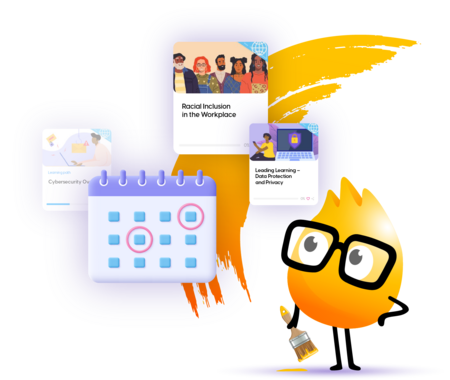Want to Boost Revenue? Train your Enterprise Like You Train the Sales Team
Your sales team is the backbone of your revenue-generating organization. They are the face of your brand. They are experts when it comes to your customers and to your products.
With that much responsibility for your brand and your revenue, it makes sense that you would invest in your sales team’s training. Product training, customer service training, sales enablement — they are all part of a well-designed training program.
But what if you trained your entire enterprise the way you trained your salespeople? How would your enterprise training look if it were sales-based?
What is enterprise training?
Before defining enterprise training, it might be helpful to define “enterprise.” Enterprise is often used interchangeably with words like “company,” “corporation,” or “organization,” but the word actually describes a specific kind of business.
“Enterprise” refers to the way in which a company is organized. Enterprises have multiple levels, locations, divisions, or departments. Although an enterprise can be any size, they are often large. With many employees across several specialized departments, training and learning is especially important for enterprises. The extended enterprise is even larger, encompassing partners, vendors, customers, and clients.
Enterprise learning involves creating a set of learning principles and practices that enable employees, partners, clients, and customers to access knowledge and training when they need it. In a world where content changes rapidly and the need to learn it is even greater, access to information, training, and experts is essential to staying competitive and achieving critical business objectives.
Enterprise training solutions are software platforms that help administer learning to the entire organization, even if your team is spread out over several sites or departments, so that everyone in the enterprise is on the same page. Often this takes the form of an LMS (learning management system).
Why train your enterprise like you train salespeople?
Closing deals is the responsibility of your sales team. Generating revenue, though? That’s everyone’s job. Your entire organization is designed to bring in revenue, no matter what role a team member fills.
It’s important that everyone has some familiarity with your products, customers, and the sales process itself. There are several reasons for this. Below are three of the most important:
1. Enterprise-wide sales training aligns everyone with Enterprise-wide sales training
Customer expectations are on the rise; 60% of service professionals say customer expectations increased during the last few years. As a rule, customers expect prompt, accurate answers, seamless service, and excellent digital service.
Their expectations aren’t limited to sales and CX teams; many buyers are looking at your enterprise as a whole. Customers are looking for a company that aligns with their own values and ethics. Prospects research companies, checking for honesty, treatment of customers, treatment of workforce, environmental impact and other stances when deciding to buy from a company. In fact, 66% of customers say they’ve stopped buying from a company whose values didn’t align with theirs. They’re also researching individual sales pros: when a seller reaches out, the top three things buyers do include checking the company website, Googling the salesperson, and checking the rep’s LinkedIn page.
It’s critical that every member of your enterprise – from your CEO, to your social media manager, to your customer care representatives and your partner re-sellers – is made aware of what your brand stands for, and receives consistent training to ensure that they are properly representing the organization
2. Enterprise training keeps your organization agile
Being able to adapt is a critical skill for any organization; one need only look at the last few years to see how the most successful companies were those able to quickly pivot, or reshuffle existing staff into brand new positions.
When all of your team members have been trained like salespeople, it can teach your entire company how to be agile, in big ways and small ones.
Here are a few examples in which sales training for the enterprise could improve agility:
- If you have to temporarily expand your sales team ahead of a product launch, you can do so without hiring new staff.
- Any company representative at a networking event can start the sales process themselves, without the need to connect a prospect with a sales representative.
- The rest of your team will understand how the sales team works, and may have ideas for how to improve cross-functional collaboration.
3. Enterprise-wide sales training gives workers transferrable skills
Your team members don’t have to be in sales to use sales skills at work. Sales skills can be used across several scenarios, like pitching a departmental budget, researching needs, or trying to get buy-in on a new initiative.
When a team member understands selling, they’ll be able to understand that it’s not about pushing what they want. Instead, they’ll see that sales is about identifying problems and offering solutions. This can help them learn how to overcome objections rationally, and how to improve other soft skills, like communication and empathy.
By offering your entire enterprise the chance to learn sales skills you can boost revenue and make your company and your people more resilient.
To explore how sales training can make an impact for your organization, download our latest eBook, Rev Up Revenue: Sales Training for Every Career Stage. This guide outlines the average career paths of salespeople and partners, and offers tips and best practices for designing sales training programs that will improve your revenue team’s performance.





